Ecological shipping: real action for the environment
To deal with the main source of our CO2 emissions and atmospheric pollutants, changing the way Colissimo ships products means we are making the planet a better place for us all. This also means proving a shipping solution that uses environmentally-friendly transport in line with your own CSR commitments.
We have been optimizing our transport links to reduce the number of kilometers traveled and optimize loading rates for many years, but this is no longer enough. We need to go even further by reducing the use of thermal vehicles and fossil fuels, by transporting less air in trailers and parcels, and by putting fewer trucks on the roads and cars in our cities.

Developing bulk loading and storage and shipping in swap bodies so we can ship more parcels in less space.

Since 2021, Colissimo has been generalising bulk loading in order to improve the load rates in our lorries. “Properly stacked” is a new way to arrange lorry interiors, replacing the use of intermediate containers in trailers. One solution is optimised conditioning, used in 37% of regional and 100% of national parcel links.

In short, swap bodies are smaller trailers that can be attached to each other, thus shipping more parcels while optimising routes.
Since the end of 2024, more than 1,300 swap bodies have been deployed throughout France, shipping more parcels in less space.
Together, these two initiatives are having a genuine favourable impact on the environment and offer faster deliveries.
- Before, a lorry loaded with postal containers could carry 1,300 parcels. Now, using stacked bulk and swap bodies, we can carry up to 4,500 parcels / lorry.
- Generalising stacked bulk and swap bodies results in a 30% optimisation of shipping.
- By 2030, the deployment of swap bodies will cover 50% of our national and regional routes.
- Thanks to these initiatives, we are seeing a cumulative reduction of 70,000 metric tonnes of CO2 emissions from 2021 to 2030.
Limiting the mileage and number of lorries on the roads by optimising road links.

The deployment of the HUB function enables us to adjust sorting capacities and to optimise and reduce the overall mileage travelled
The deployment of the HUB function in our shipping organisations includes changes to the specialisations at the Colissimo sorting platforms in our network, in particular with a centralising role in grouping flows from several platforms at a single destination.
This enables us to adjust sorting capacities and to optimise and reduce the overall mileage travelled.
Between 2022 and 2024 that has led to 14,9% fewer km travelled on national roadways
Decarbonising shipping: an ambitious objective that we hold dear
We are continuing to optimise and reduce the CO2 footprint we all leave: we’re on the right track.
We are proud to report that we have already implemented several initiatives:
- -39% CO2 emissions from 2013 to 2023
- 198 million km travelled by electric vehicles in 2024
- 100% of deliveries in Paris are decarbonised in 2023
- 15,000 T of CO2 avoided per year compared with conventional container/pallet loading.
We are continuing efforts by working on alternative fuels, developing our fleet of electric vehicles and soft modes for our urban centres.
In the run-up to this decarbonization, we are continuing to take the temperature of our emissions as closely as possible, and we are pursuing our recognized reduction targets compatible with the global 2°C trajectory via the Science Based Targets (SBTi) initiative:
- -6.1% in absolute terms between 2013 and 2024
- -53% in intensity per parcel between 2013 and 2024
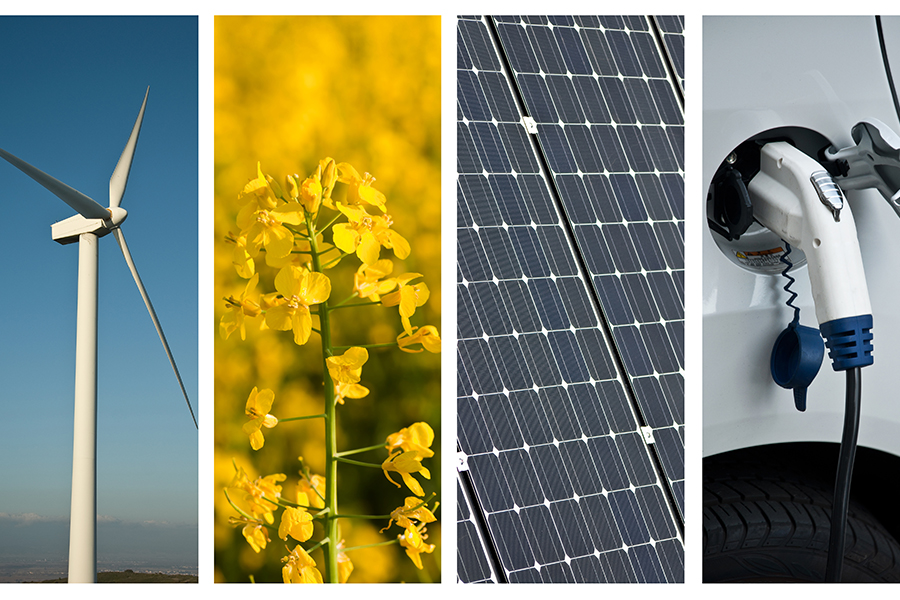
To progressively decarbonise our links, Le Groupe La Poste (and Colissimo) invested
400 million Euros to convert our lorry fleet to low carbon.
From 2025, the use of alternative energies will be accelerated, with electric or hydrogen energy used depending on the distances.
Objective 2030: 50% of national road shipping kms travelled using low-carbon energy.
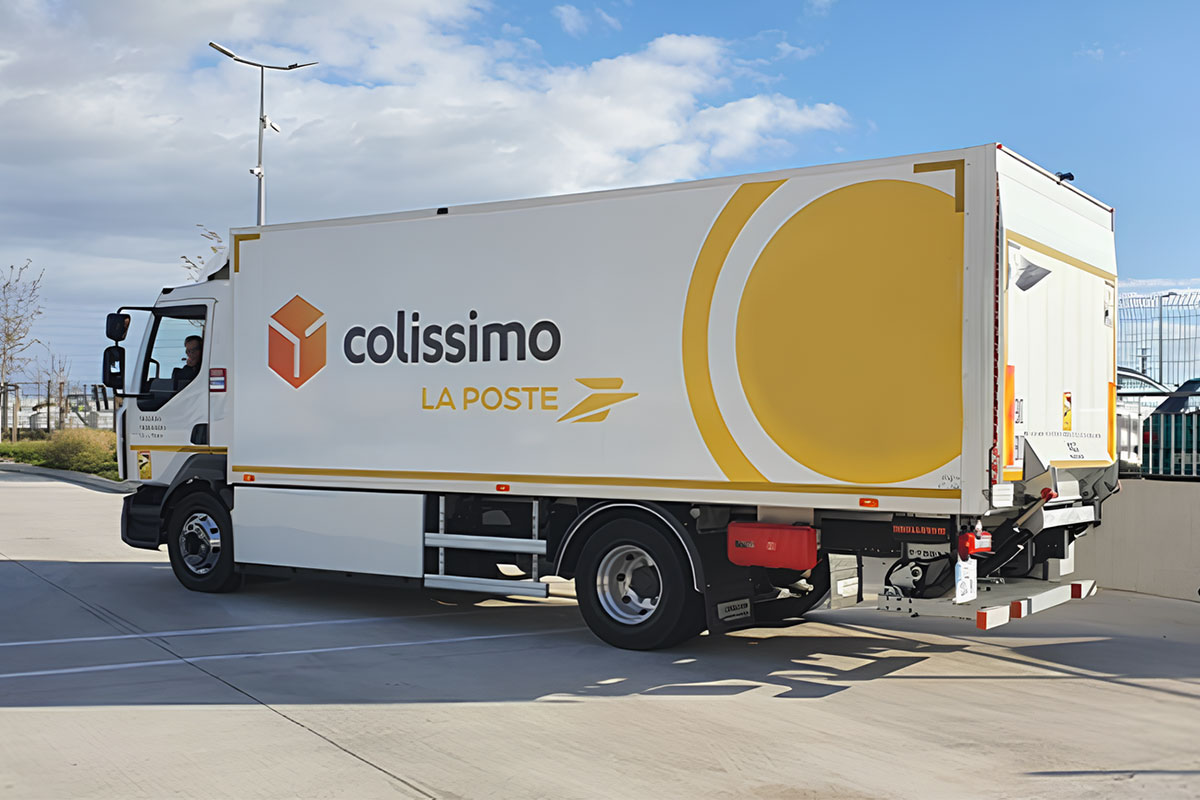
In 2024, more than 198 million km was travelled by electric vehicles.
With over 14,300 electric vehicles (including 1192 with Colissimo) this represents 42,3% of the fleet, one of the biggest of the type in Europe.
This also involves purchasing and developing electric heavy vehicles with industrial partners.
Objective 2040: Achieve zero net emissions.
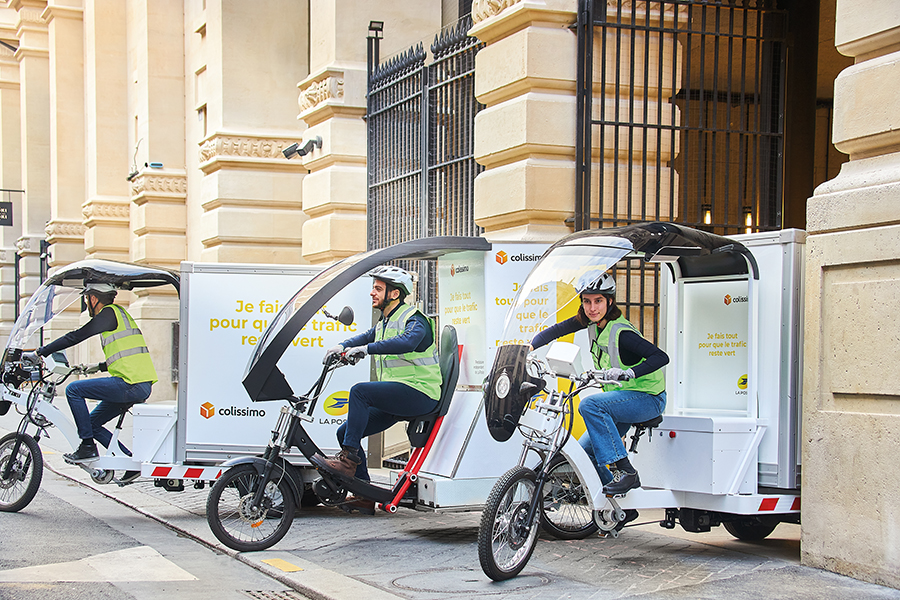
Colissimo is rethinking its responsible urban logistics by rethinking the delivery of your parcels. With more electric vehicles, of course, but above all with environmentally-friendly modes of transport, thanks to 1,000 electrically-assisted cargo bikes by the end of 2024, for the first and last kilometers of delivery.
Ecological alertness is at a peak.
You may be interested in:
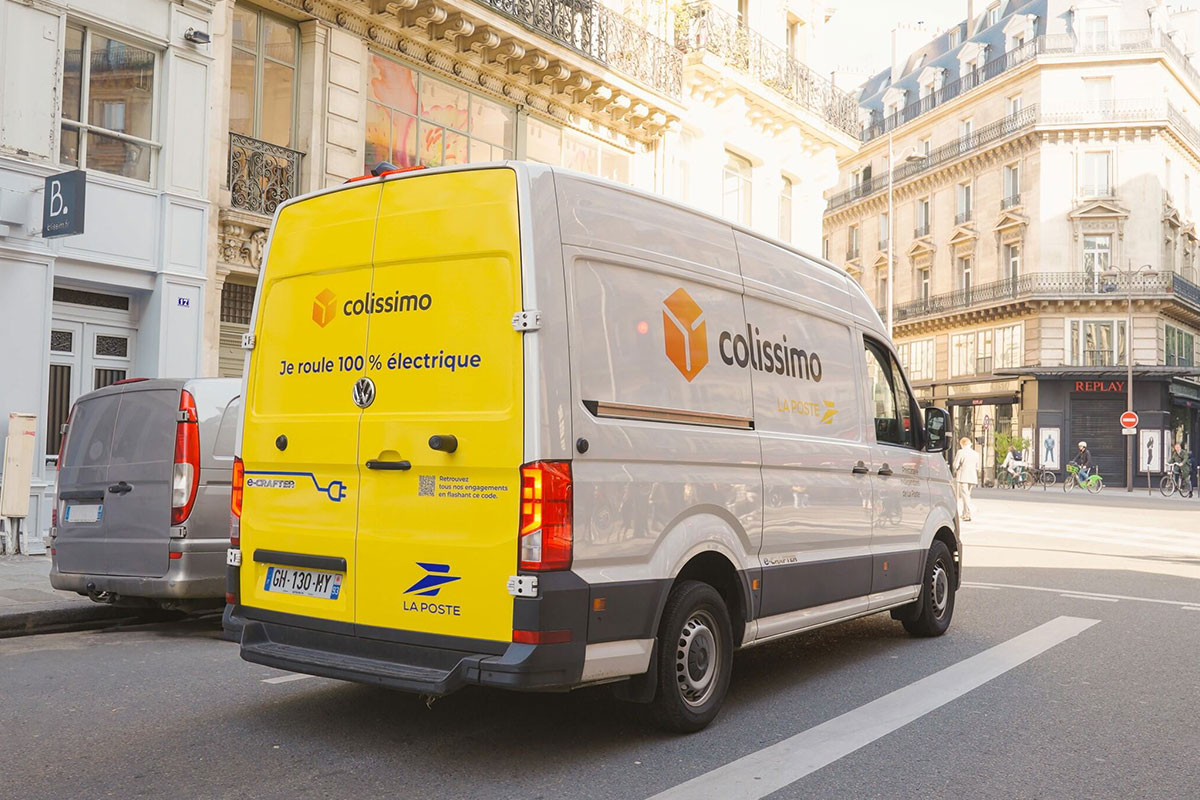
Learn more >
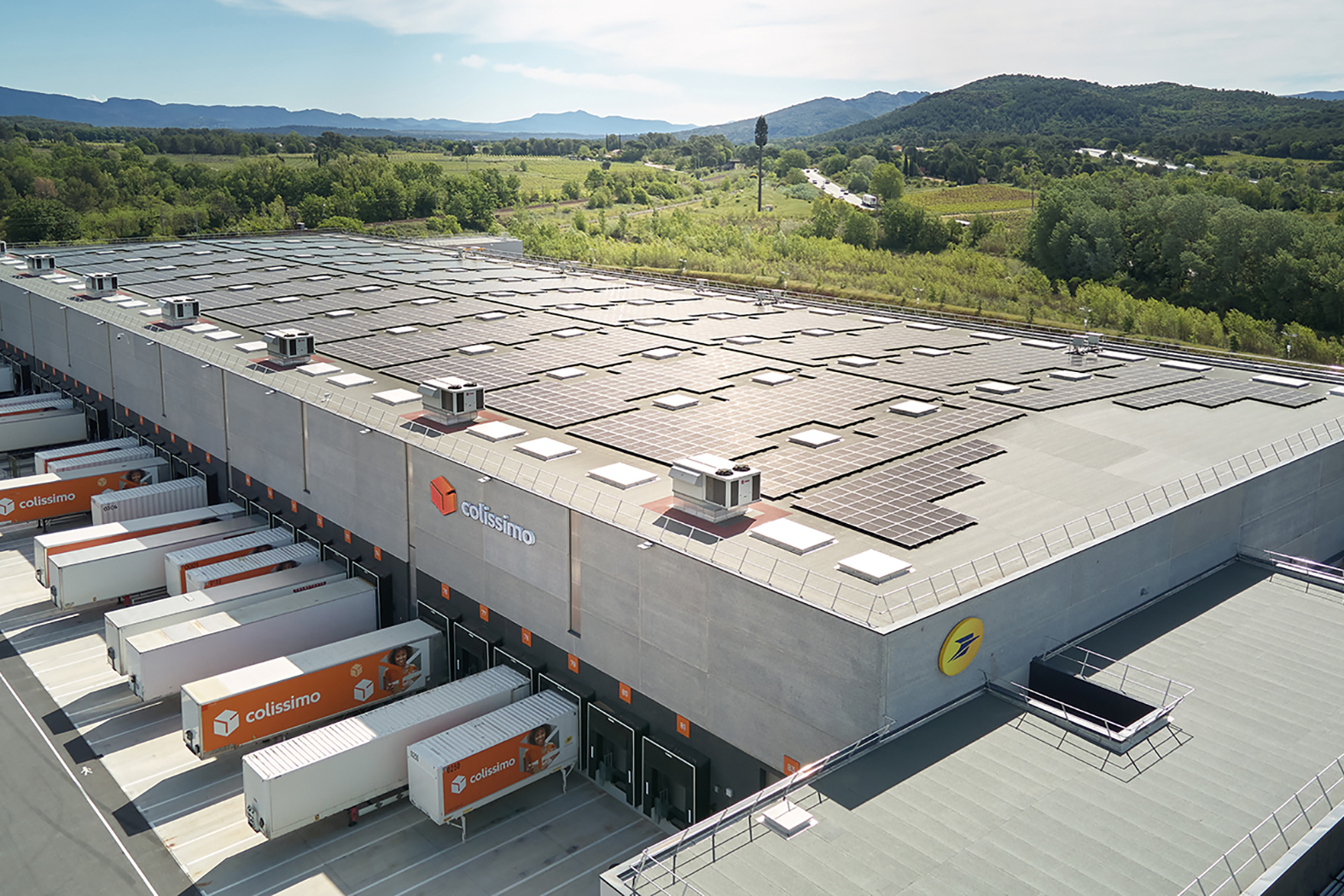
Learn more >
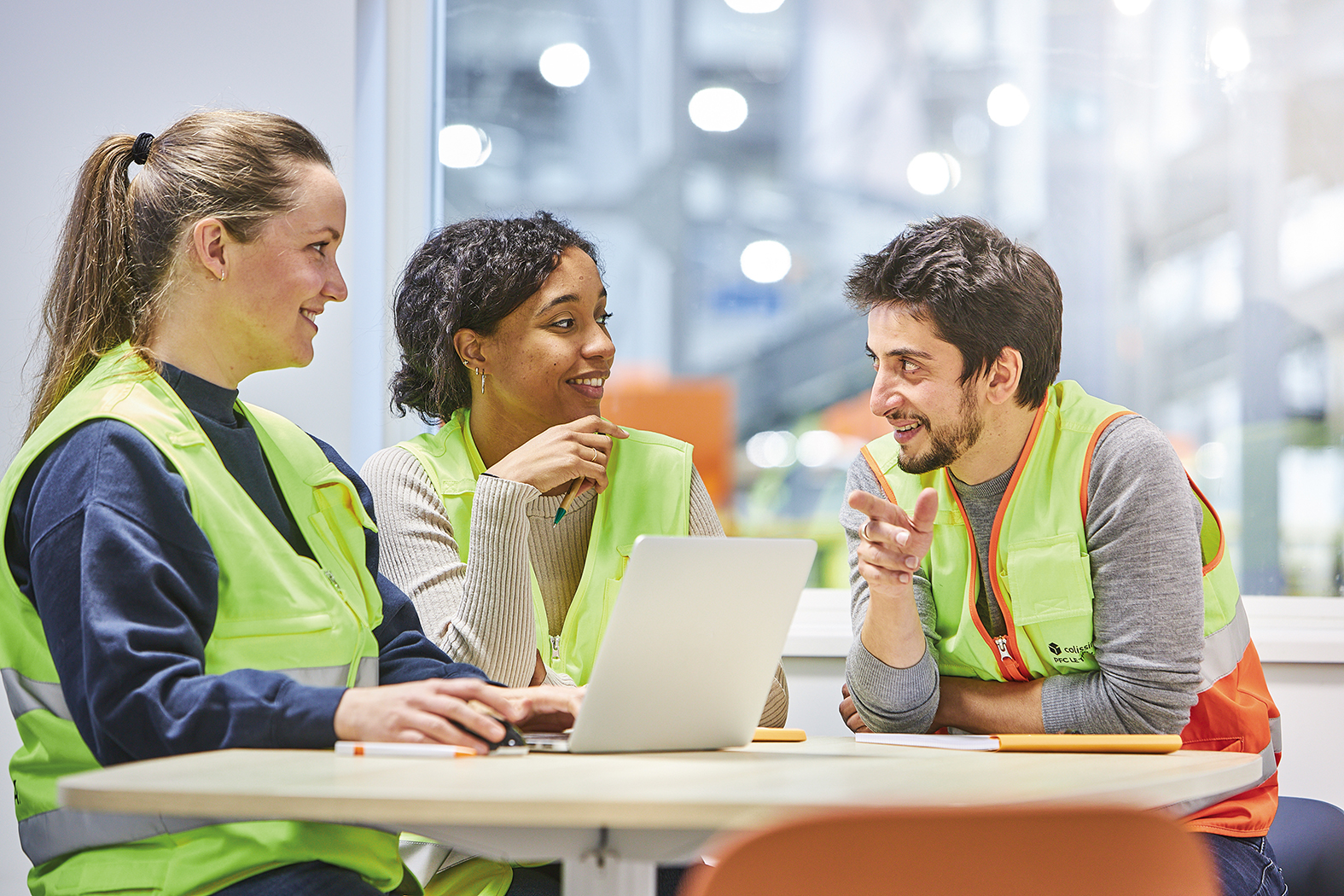
Learn more >
